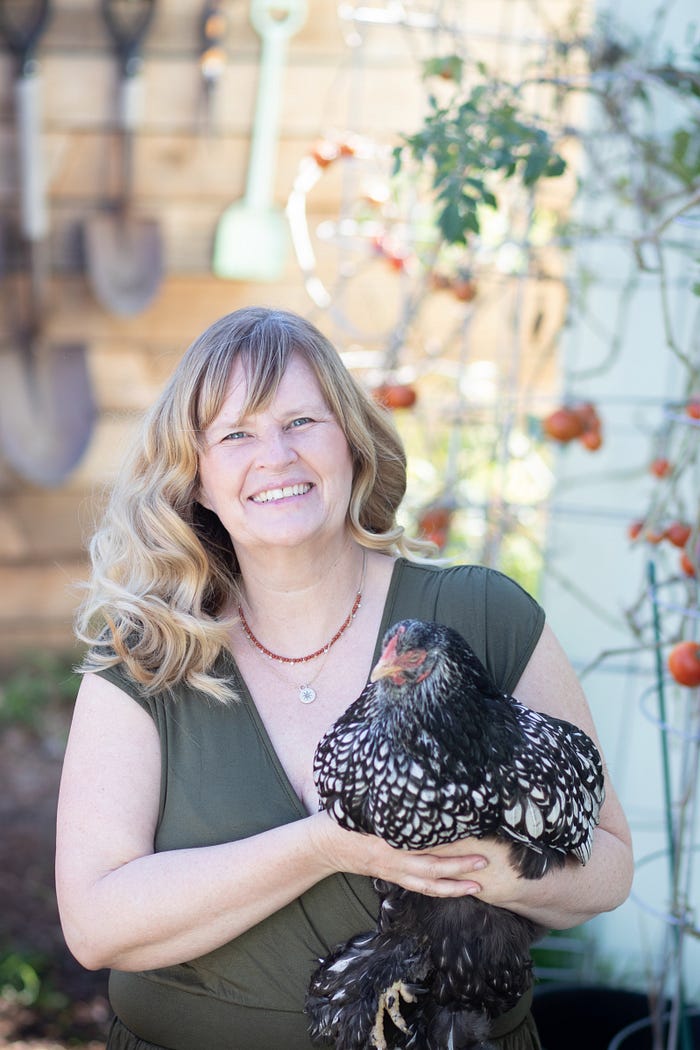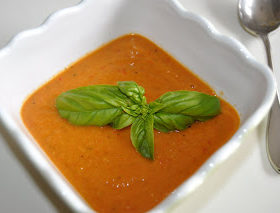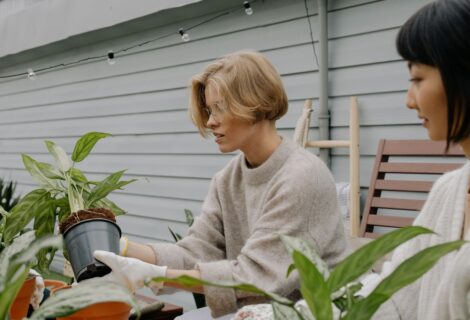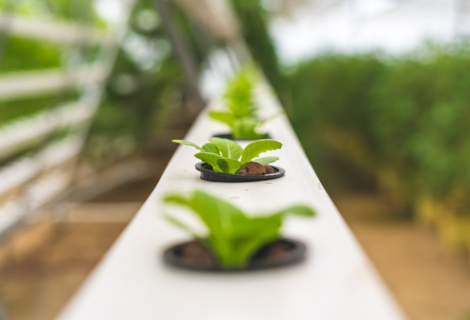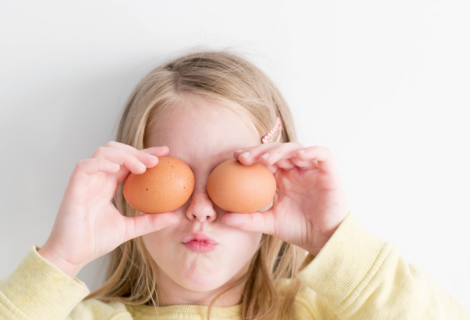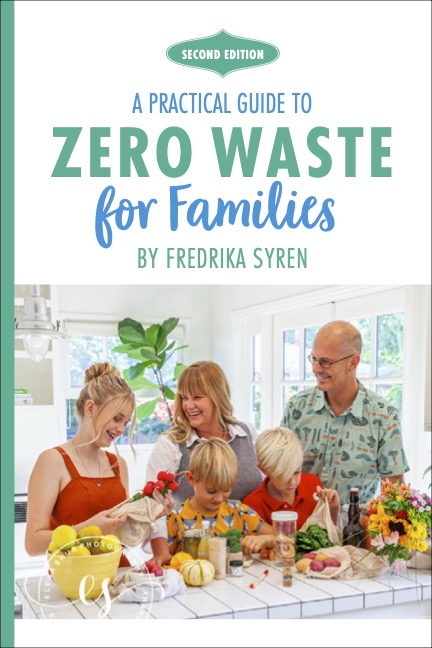5 Things You Need To Know To Create A Successful Vegetable Garden To Grow Your Own Food
An Interview With Martita Mestey
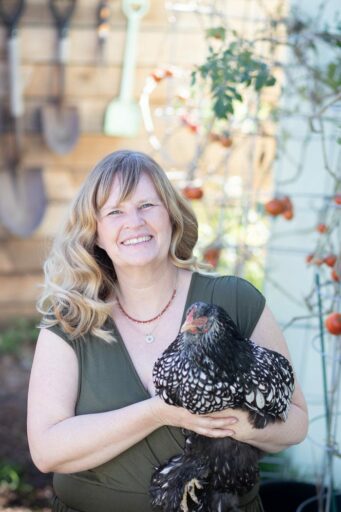
Soil- In order to have plants thrive in a successful vegetable garden, healthy soil is key. We need to feed the soil, not the plant to create a natural soil without the use of synthetic fertilizers. Your soil needs to maintain a good texture, be loose and contains an abundance of nutritious organic matter.
Aswe all know, inflation has really increased the price of food. Many people have turned to home gardening to grow their own food. Many have tried this and have been really successful. But others struggle to produce food in their own garden. What do you need to know to create a successful vegetable garden to grow your own food? In this interview series, called “5 Things You Need To Know To Create A Successful Vegetable Garden To Grow Your Own Food” we are talking to experts in vegetable gardening who can share stories and insights from their experiences.
As a part of this series, we had the pleasure of interviewing Fredrika Syren from the Zero Waste Family.
Fredrika Syren is an environmental activist and writer. In 2016, she founded the website green-mom.com where she shared her family’s journey of living zero-waste. She lives in San Diego, California with her husband James and their children Bella, Noah, and Liam. Fredrika and her family were recently featured in the documentary Zero Time to Waste.
Thank you so much for joining us in this interview series! Before we dig in, our readers would like to get to know you a bit more. Can you tell us a bit about your “backstory”?
Ihave been an environmental writer for 20 years, writing about holding companies and the government responsible. Once I became a mom I realized that climate change will be the biggest threat that my kids will face. I began to realize that we do need the companies and government to work on sustainability and we also need individual action to make that happen. This is when I began my journey towards a sustainable life. We took it one step at the time and began to reduce our waste until 2015 when we were ready to remove our waste bin and began a life as a zero waste family of five.
I decided to write my book a practical guide to zero waste for families because it’s the book I wish I had when we started our journey to help. The book is filled with tips and recipes to make changes at home, no matter how big or small.
Can you share the most interesting story that happened to you since you began your career?
In the beginning people did not know what to think of us as a family with no trash bin and who biked kids to school. It took a year and having classmates and friends over to our home for people to begin to realize that what we’re doing is actually not that crazy or even hard to do. Eventually we started to get calls and text asking for advice on ways for our friends in our community to reduce their waste. People began to also grow food in their backyard like us. The school asked us to help them go to zero waste. The ripple effects of our zero waste lifestyle affected our community and we’re so happy to be part of it.
You are a successful leader. Which three character traits do you think were most instrumental to your success? Can you please share a story or example for each?
- Patience
- Believing in myself
- Non-judgment
Reducing your waste to zero is a challenge and there are many bumps in the road so being patient is important because sometimes swap does not work and you have to not lose faith but find another way. When we first started out we could not find refillable shampoo so we made our own and my hair looked like a troll. A cut troll but it was a hot mess. I told a friend who is a hairstylist and she did some research and found a chemical free shampoo she would order for me in a metal bottle.
Can you please give us your favorite “Life Lesson Quote”? Can you share how that was relevant to you in your life?
“The world is changed by your example, not by your opinion.”
I have learned that if we preach about saving the planet, scaring people about facts about climate change it will make them change so instead we have learned that most people that have made changes because of us, it’s because we inspire them with our action instead of judgment.
Are you working on any interesting or exciting new projects now? How do you think that will help people?
We’re launching an online course that teaches you how to turn your backyard into a food forest. Teaching people to grow food for themselves, in the middle of the city. My 9 year old son Liam and I speaking about how to talk to kids about climate change at the Youth Zero waste USA conference on March 18th
Ok super. Let’s now shift to the main part of our discussion about creating a successful garden to grow your own food. Can you help articulate a few reasons why people should be interested in making their own vegetable garden? For example, how is it better for our health? For the environment? For our wallet?
Growing your own food is so beneficial on so many levels because growing your own food you know what is in your food, you can control how you food is grown from the soil you use to what you use for fertilizer to what you spray as pesticides.
No matter if you plant a vegetable garden, grow herbs and lettuce in pots on your patio or balcony or grow sprouts or microgreens indoors, it will have a positive impact and you will lower your carbon footprint. Furthermore, plants eat carbon so anything you grow will help clean the air and it’s one less food you have to buy from the store.
When you grow your own food, there is no need for plastic packaging which will reduce fossil fuel inputs. Pesticide and other chemical inputs can be much less in a small, well-tended garden than even a small farm or an indoor garden.
Growing food at home does save money but I guess it all depends on how you grow food. For my family we save money gardening because we grow our own soil with lots of compost and mulch that is free. We save seeds or trade seeds instead of buying. We make our own compost for fertilizer and all these small changes help us save a lot of money.
Where should someone start if they would like to start a garden? Which resources would you recommend? Which plants should they start with?
On our web site zerowastefamily.com and on our YouTube channel we share lots of resources for anyone who wants to grow food. Otherwise, there are tons of hobby farmers you can look for help and inspiration. I would say only grow food that you actually eat a lot of. When we first started growing food we grew a lot of vegetables we do not necessarily eat a lot of. So if you eat a lot of lettuce I say grow a lot of that. In general I say grow potatoes, onions, lettuce, kale and tomatoes and you have the beginning of a great meal.
Can you please share your “5 Things You Need To Know To Create A Successful Vegetable Garden To Grow Your Own Food”?
Soil- In order to have plants thrive in a successful vegetable garden, healthy soil is key. We need to feed the soil, not the plant to create a natural soil without the use of synthetic fertilizers. Your soil needs to maintain a good texture, be loose and contains an abundance of nutritious organic matter.
Compost- I usually say that the first step in growing a garden begins with good compost. Compost is like miracle soil. It helps sandy soil hold nutrients and moisture, and loosens heavy clay so plants can breathe. The beneficial microorganisms in compost help your plants grow strong and healthy. As it decomposes, compost feeds your plants naturally and organically.
Grow the right food for your climate- I have tried to grow food that is wrong for my climate in zone 10A or tried to plant in the middle of heatwaves and it’s so frustrating. So learn what plants to grow in your grow zone and when to grow them for maximum success.
Make your own fertilizer — You never ever want to add artificial fertilizers in your garden. A much better option of fertilizers are compost, compost tea, bunny or guinea pig poop and pee.
There are no mistakes in gardening, just learning opportunities- When you start gardening you will have disasters and make many mistakes and don’t lose hope and feel hopeless. We should learn from our mistakes and see them for what they really are, just a learning curve.
What are the most common mistakes you have seen people make when they start a garden? What specifically can be done to avoid those errors?
The most common mistakes I see are people not buying good soil. The soil is the foundation and can make or break your plants. The soil needs to contain natural nutrients because that is what the plant feeds on and you can only have healthy plants with good quality soil.
What are some of the best ways to keep the costs of gardening down?
The best ways to keep the cost of gardening down is by making your own compost, use fallen leaves and grass clipping as mulch (make sure it has not been sprayed), keep adding compost and mulch to soil so you do not need to keep adding more soil. Use what you have for planting seedlings: egg cartons, yogurt containers, milk cartons work great for planting in.
You are a person of great influence. If you could inspire a movement that would bring the most amount of good to the most amount of people, what would that be? You never know what your idea can trigger. 🙂
I would love to see people replacing water sucking grass and rose bushes and growing food instead in their front, backyard or even patios.
Is there a person in the world, or in the US with whom you would love to have a private breakfast or lunch with, and why? He or she might just see this, especially if we tag them. 🙂
I would love to meet former first lady Michele Obama and hear her story about growing a vegetable garden on the white house lawn.
How can our readers further follow your work online?
Website:
Instagram:
YouTube:
https://www.youtube.com/zerowastefamily
My book:
A practical guide to zero waste for families
Thank you so much for the time you spent on this interview. We wish you only continued success and good health.


